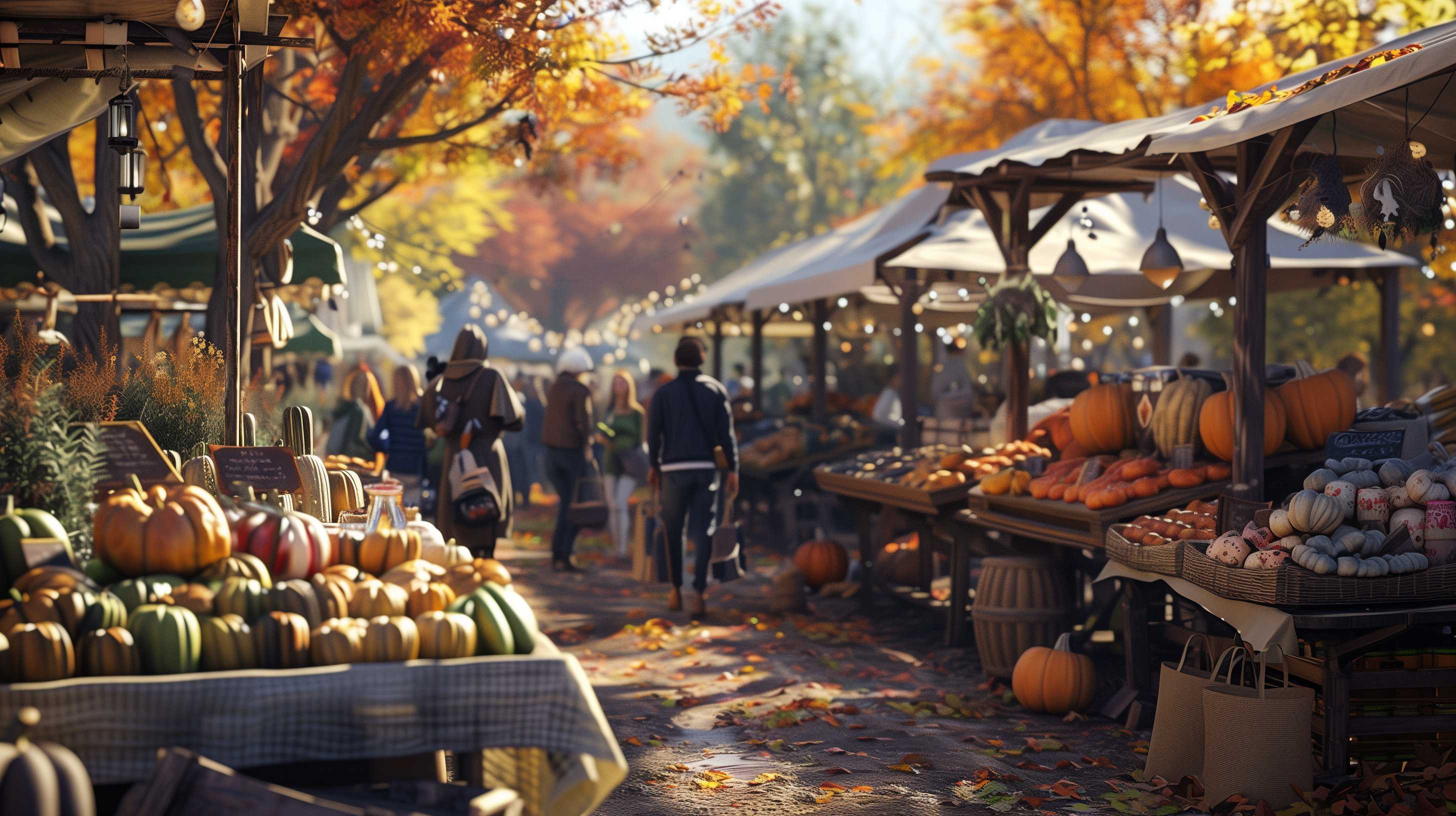October rolls around and suddenly everyone is completely stoked about attending haunted houses, corn mazes, and Halloween bashes. Your social media feeds are with individuals screaming their way through high-production-value horror scares scenes, and someone will approach you and invite you along on the group excursion to that new extreme haunt everyone's been talking about.
And you have to figure out how to tell, again, why something that to everyone else appears like a blast might just potentially make your stomach ache for days.
It's the thing no one knows: The most popular Halloween activities are designed to shock your nervous system. Strobe lights, fog machines, sudden loud noises, crowds of people, individuals who are attempting to scare the life out of you, these are more than just startling and insensitive if you have specific underlying conditions. These are legitimate triggers that will cause migraines, seizures, POTS attacks, panic attacks, and sensory overload from which you'll be recovering for days.
It's maddening because you don't want to feel like an outsider. You want to go out. Get into the holiday spirit. Make your friends and family happy. But your body has other plans, and their plan is to spend the next three days in bed recuperating from what was supposed to be an evening of merriment.
Why Halloween Traditions Hit Different When You're Chronically Ill
I'll share with you a little secret of what is really happening inside your body when you're engaging in these activities this time of year, because if you understand why something is hurting, you can sort of be worse that you're not doing it.
Flash effects and strobes are everywhere on Halloween—haunted houses, parties, even holiday displays in retail stores. In the migrainous patient, they may trigger an attack in a matter of minutes. In epileptics or other neurologically compromised people, the effects are worse. Even without a diagnosed photosensitivity disorder, strobe lights will cause dizziness, nausea, confusion, and visual disturbances that will last hours after having left the environment.
Fog machines and artificial smoke make ambiance easy to create, but they add particulate matter to the air in a contained space that will make you asthma-breath, cause allergic reactions, and respiratory problems. If you're immunocompromised or have some lung problem whatever, that fake fog isn't just a nuisance, it's dangerous for some. And that chemical smell that will stain your clothes afterwards may linger even after you've left.
Abrupt, jarring blasts of loud noise and jump frights are really designed to drive your adrenaline and cortisol levels off the charts. If you have POTS, anxiety disorders, or autonomic dysfunction, that adrenaline rush isn't inducing a lovely little thrill, instead, it can trigger tachycardia, drops in blood pressure, panic attacks, or full-blown dysautonomia attacks. Your nervous system is already worked to the limit just to keep up; willingly loading it with shocks isn't harmless fun.
Intimate, crowded areas are problematic as well. Combine low oxygen from too many people in a sealed area, body heat, inability to receive circulating fresh air, and inability to escape quickly and all the above can lead to POTS symptomology, claustrophobia, panic attack, and heat exhaustion. Add that you will probably be standing or walking for much of the time, and you have the formula for the recipes of triggers.
Sensory overload happens when your nervous system is bombarded with more stimulation than it can process. Halloween environments specifically assault you with stimulation, visual clutter, jangling loud noises, strong smells, barrage of the sense of touch, continuous necessity for being in readiness for the next scare. For people with fibromyalgia, autism, ADHD, chronic fatigue, or post-concussion syndrome, this quantity of sensory input isn't merely overwhelming—it's actively physically painful and will result in crashes that will take days or weeks to recover from.
The Social Pressure Nobody Spoke Of
What's even worse is the social part. Halloween is supposed to be fun, and when you cannot do things in the "normal" way, you feel like you're missing out or disappointing people.
The friends do not understand why you can't just "push through" or "get it over with." They try their best hardest only when they are telling you things such as "it's not that bad" or "you'll be okay this time." They don't understand that you're not doing this because you are nervous or being too cautious—you are doing this because you know exactly what it's like when you expose yourself to these triggers, and the risk just is not worth it.
And then there's that stupid guilt of being the one you can't do the fun thing. You're a buzzkill or high-maintenance, you think. You don't want people not to invite you out if you'll just always have to say no. You'll even go ahead and do it sometimes when you know you'll get sick, so you won't be the one who never does anything.
But listen to me, what I want you to listen to is this: self-care is not equivalent to being hard to work with. It is equivalent to being a grown-up. And anyone who is making you feel bad for setting boundaries that are entirely out of your control is not someone whose guidance you should be seeking.
Alternative Ways to Celebrate That Won't Kill You
- Outdoor activities during the day: Walk through a pumpkin patch when less crowded. Take a walk in a park to enjoy the color of fall. Sit outside with a hot drink and feel the coolness in the air.
- Low-key parties: Have a low-key party where individuals dress up but there is no frenzy, excessive music, and wild environment. Conduct a home costume photo shoot or dress up just for yourself.
- Managed movie marathons: Select films in your comfort area, manage the sound, pause when needed, adjust the lighting, and take breaks whenever your body needs.
- Creative Halloween activities: Decorate your surroundings, paint pumpkins, bake if your diet allows, or engage in crafting. Celebrate at your own pace.
- Fall nature activities: Collect leaves, observe birds, or simply enjoy seasonal changes like light shifts or crisp air without commercial events.
- Quiet traditions: Light candles on Halloween night, practice gratitude, write thank-you letters, or read fall-themed books to find calm and connection.
What to Say When People Don't Understand
- "Haunted houses give me migraines, but I'd love to do something with you. Let's find something to do later in this time of year."
- "That level of overstimulation gets me ill for days each time. I'm avoiding it, but have fun!"
- "Those places aren't good for my body. It's not worth an hour of recovery time to me."
- "I'm having smaller parties this year. Will you be doing something else with me at [alternative activity] instead?"
- "That's not going to work for me."
Redefining What Halloween Can Mean
One of the harder parts of chronic illness is constantly having to learn again what it is like to be active. Halloween no longer has to equal trick-or-treating through haunted houses for you, but there is no need that it has to cease being enjoyable and significant.
Maybe Halloween today is about the simplicity of home evenings. Maybe it is about giving yourself license to be yourself in your own homemade outfits. Maybe it is about reaching out to others in softer, quieter terms. Maybe it is about honoring the loveliness of fall without bucking yourself into things that poison you.
There is no doing it incorrectly when you're marking a season. The "traditional" approach is not necessarily superior to what your body and life can handle. You're not depriving yourself by doing it differently—you're evolving, and that in itself is a mark of wisdom and self-awareness.
You're Not Overreacting
If you've ever been told at any point in your life that you're too sensitive, too afraid, or too hypersensitive when it comes to Halloween activities, please allow me to inform you: you're not. Your body's reactions to these stimuli are real, valid, and deserve protecting.
Just because everybody else is able to do these conditions doesn't mean you can. Just because you were able to do these things when you were well beforehand before falling ill doesn't mean that you are duty-bound to just continue doing it now. And just because it's trendy or conventional doesn't mean that it's worth playing with your health for.
You understand your body. You understand what it does when you push it to its limits. And not pushing it there isn't weakness, one of the most courageous things you can do.
Respecting Your Body's Needs This Season
As October goes on and Halloween draws near, be good to yourself and grant yourself license to observe in whatever way feels right for you. That may be about embracing some of the older traditions, creating entirely new ones, or simply keeping the celebration at home with something warm and comforting around you.
Your own well-being is more important than one incident or even a single habit. Your people will come to understand that and show up for the choices you make to take care of you. And those who do not "get it"? Their failure to get it says nothing about you and everything about their own inability to engage with a different kind of experience.
This Halloween, respect your body's limits. Do what makes you happy without hurting you. And know that whatever treat is not worth putting yourself on the precipice of a flare just to try and show that you can do something that any other human can do.
You can do otherwise. You can sidestep what hurts you. And you are completely free to create a Halloween that is working for you, even if it bears no resemblance to anything about whatever anyone else is doing.




When the Cold Bites: How Changes in the Weather Impact Autoimmune Flares and Chronic Pain
Psoriasis and the Cold: Why Fall & Winter Are Flare Seasons